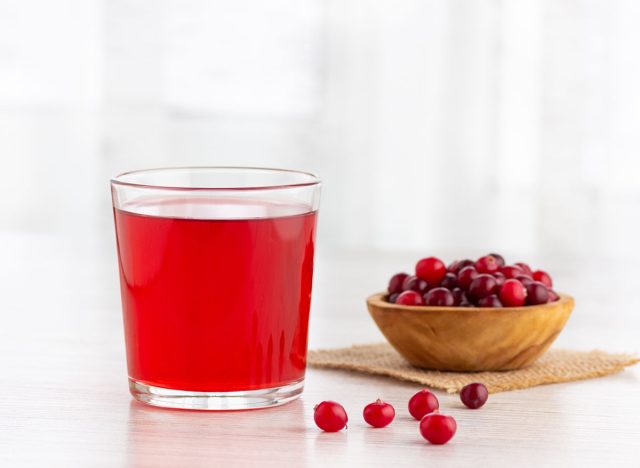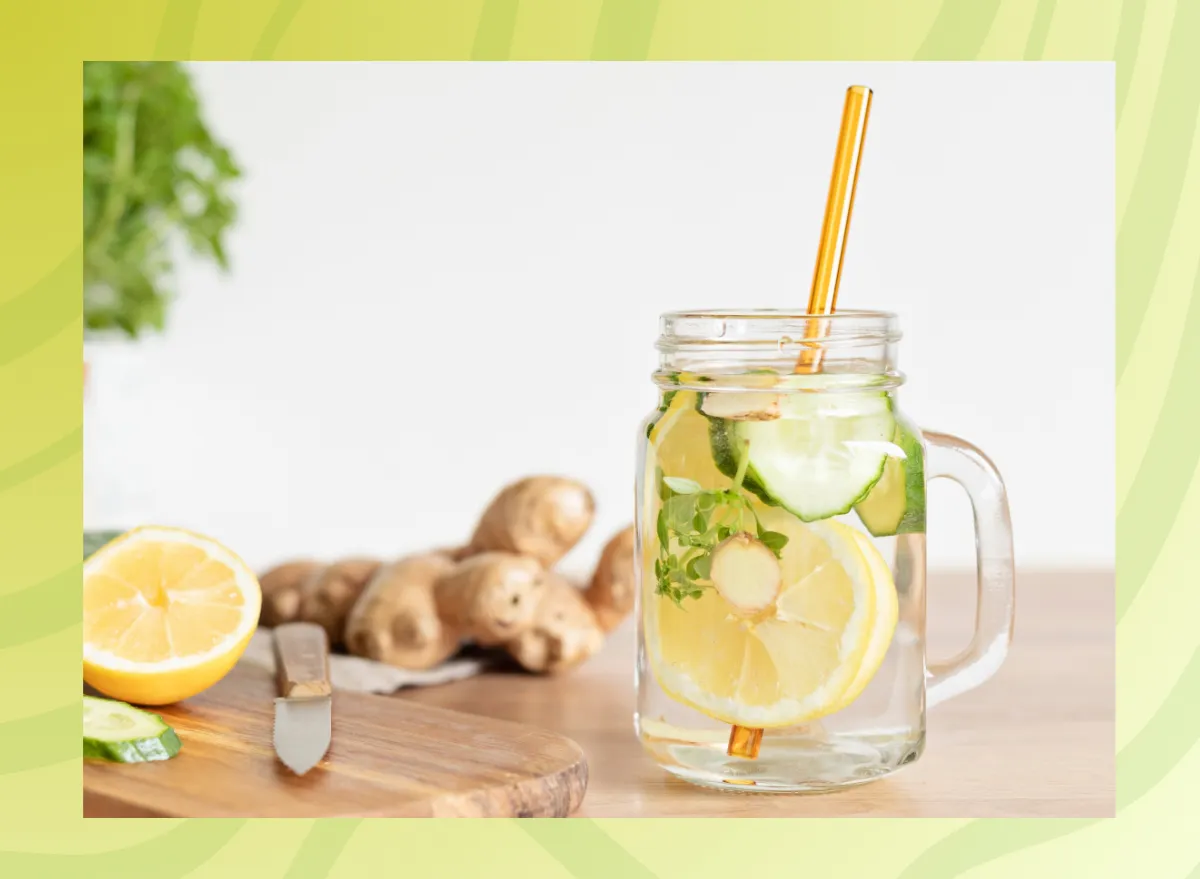Cranberries may not be your go-to fruit, but there is good reason to frequently incorporate this tart berry into your meal and snack rotation. While often associated with juice, cranberry sauce, and other sugary recipes, cranberries aren’t usually thought of as being as healthy as other fruits.
However, cranberries are in fact packed with many valuable nutrients, like antioxidants, vitamin C, and fiber, all of which have many positive health benefits. When you eat cranberries, you’ll be loading up on powerful plant compounds that appear to have a positive impact in many areas of your body, including reducing certain diseases.
Read on to learn more about what happens to your body when you eat cranberries. Then for more healthy eating tips, make sure to check out the 44 Best High-Fiber Foods for a Healthy Diet.
The health benefits of cranberries


The most valuable nutrients found in cranberries are its antioxidants and plant compounds, many of which are concentrated in the skin of the cranberry. This fact means cranberries can be most impactful on your health when eaten whole, compared to being processed into a juice. Supplemental forms of cranberry may also possess concentrated amounts of these nutrients if the skin is used. However, you likely lose out on fiber when consuming cranberries in this form.
When you eat cranberries, the antioxidants they contain provide a number of benefits. As with all antioxidants, these compounds stabilize damaging free radicals in your body, preventing them from causing damage to your body. Some of the compounds in cranberries have other health-promoting properties, too.
READ RELATED: 12 Best Fast-Food Burgers, According to Chefs
For example, A-type cranberry proanthocyanidins are thought to prevent urinary tract infections, one of the most common bacterial infections in women. Cranberries are one of the richest sources of this compound and likely the reason cranberry juice and supplements are used as a tool to prevent and manage UTIs. This same compound is also thought to help reduce the risk of the bacteria H. pylori attaching to the stomach lining, which may in turn reduce the risk of stomach cancer.
These proanthocyanidins and other antioxidants are documented to benefit heart health, too. In one study, cranberry extract was found to improve blood cholesterol profiles in those with Type 2 Diabetes while another study saw improved heart health markers in those who consumed low calorie cranberry juice daily.
Different ways you can enjoy cranberries
Cranberries on their own can be really tart and harder to eat, but they can be consumed in many different forms.
Making juices or smoothies, cooking them into sauces to add sweetness, or taking cranberry supplements can all help you consume various amounts of the powerful compounds found in cranberries, so enjoying them in a variety of different preparations may be best. Additionally, limit the amount of added sugar you consume with cranberries, as this ingredient can pose its own health concerns.
Source:








